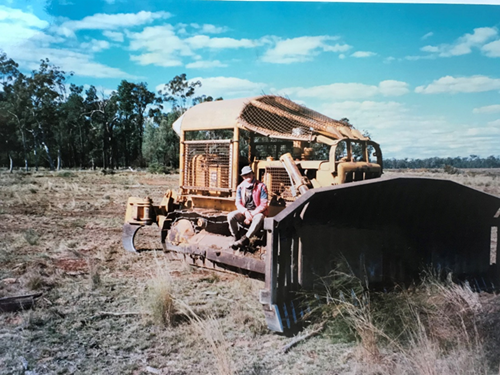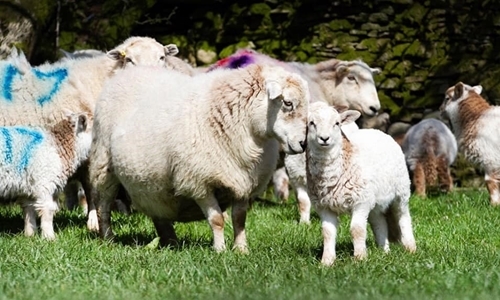Written by Sue Evans, Director of GWCT Cymru
3 Minute Read

Sue Evans clearing scrub in Australia 1997 before moving on to work as a cow hand on Legune Station with 35,000 head of cattle
The biggest talk in town at present has been the Australian trade deal. I have been reluctant for us (GWCT Wales) to get into this debate as trade is not within our Charitable Objectives. But reading James Rebanks’ piece I find it hard not to put forward my tuppenny worth. For years I’ve felt that Westminster aspires for the UK to be like my perception of Singapore – a big conurbation with the land used for the leisure of those who work in the city.
I was told the other day that in the recent G7 summit agreement that the UK won’t have to add the carbon used to create the food it imports to its total carbon usage. By this logic, the easiest way to reduce our carbon footprint would be to import all our food! Then Alastair Leake has just confirmed that if he brought a contractor into Loddington to do all the cultivations and harvesting work the fuel used doesn’t have to be accounted for as it would go on the contractor’s carbon accounts! What does that do to the rest of the world’s carbon footprint? Is this just an elaborate fudge to create the answers palatable to politicians to persuade our population that they are doing the right thing?
In the UK I often wonder why farmers continue with their endeavours to produce food. Yes of course there’s the question of what else would they do but with the feeling that the general public are so vocally against them why do they bother? In what other profession are people criticised for doing their job, but also expected to look after wildlife, carbon, water quality and much more?

The country needs feeding, and we all know that this has got to be one of the most important provisions for life. The 2010 eruption of the Eyjafjallajokull volcano in Iceland shook our food supply chains and made the country think about what would happen if we couldn’t get the food into our shops. But still our British farmers are often vilified for trying to produce food in a global market. The beef and sheep farmers are constantly berated for their negative effect on global warming though, as I’ve said before, doesn’t that depend on how you measure the carbon? What else would we do with our mountains and Less Favoured Area land?
The dairy farmers are vilified for their methods of hand rearing calves and potential pollution. Then the arable farmers along with veg and fruit growers who potentially produce a product for a vegan market are vilified for the use of sprays and inorganic fertiliser. Many of the farmers I speak with would love to farm in a less intensive way, but their income is dependent on a fiercely competitive world food market. Farming in Wales is hard. Even Jeremy Clarkson on his 1000 acres of Gloucestershire farm is beginning to understand the perils and pitfalls of farming. Yet our farmers continue to try and eke out a living with everyone seemingly against them.
We could import the majority of our food from places around the world based solely on cheapest price in the supermarkets seemingly without caring about the effect on the wider global warming or the environment. Australia is a very big country and you get all sorts of farming over there of all shapes and sizes so it’s not fair to say that it would all be produced to a lesser standard. But even if all the food brought in from the Southern hemisphere had to comply with an equal amount of regulation and welfare standards to our UK farmers I do wonder, as with our imports of almonds from California – is it really carbon friendly to bring it in to the UK from the other side of the world rather than eating lamb off the mountains and hills of Wales, take it to a local slaughter house (now I’m fantasising – how many of them are left) and sell it to people on our doorstep?